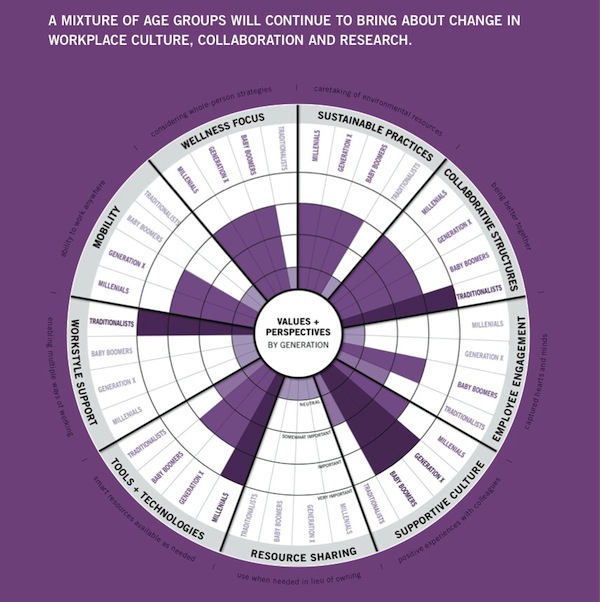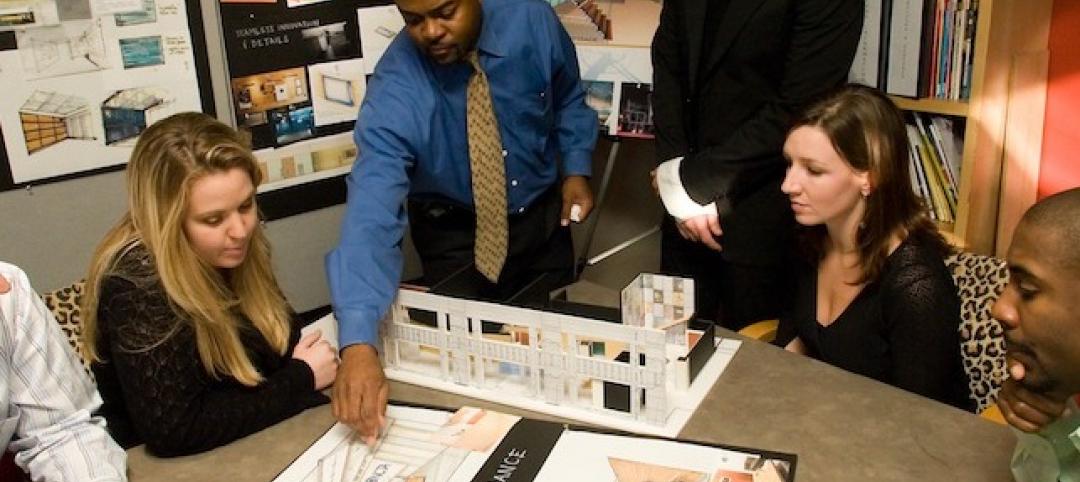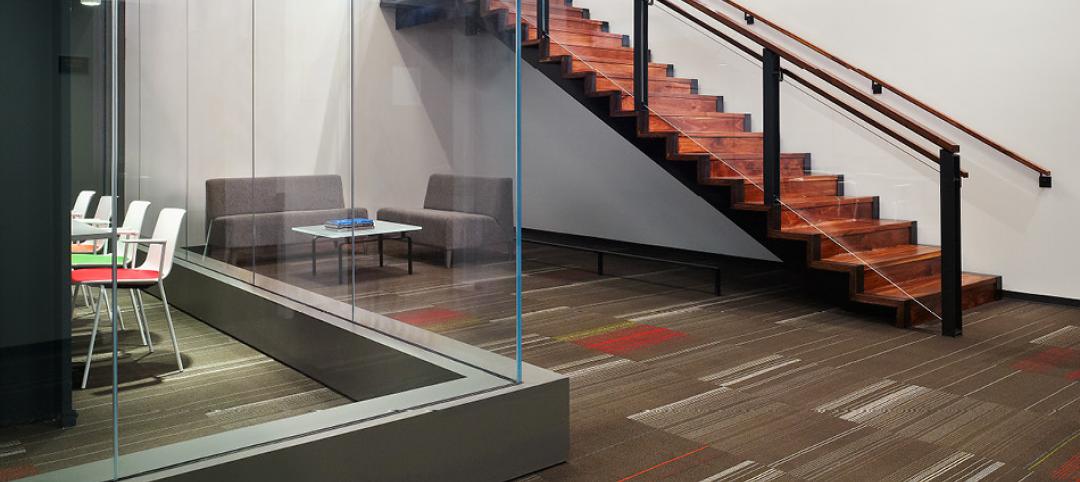Architectural giant Perkins+Will recently surveyed its staff of 1,500 design pros to forcast hot trends in the AEC field for 2014. The resulting Design + Insights Survey reflects a global perspective, influenced by the firm's active international projects.
Trend 1: Design + Resiliency
Robin Guenther, FAIA, LEED AP, Principal/Sustainable Healthcare Design Leader, labels Superstorm Sandy "a critical wake-up call." The report predicts that designers will pay more attention to creating work that accounts for the possiblity of natural disasters. Preparedness will be integrated with community-based design responses to impacts such as earthquakes, tornados, floods, and drought.
Trend 2: Design + Sustainability
Health aspects of building materials, as well as reduction in water use and adaptation to climate change, will be strong focuses in green design. The report characterizes material health as "the number one concern for 2014" among all sustainability issues.
Trend 3: Design + Active Design
Employee health and wellness will be increasingly central to design, the firm predicts. The intention to accommodate more movement opportunities in projects will have to overcome the fact that some clients do not see this as a high priority, particularly in workplace design. Nevertheless, "There are some alarming statistics that indicate movement throughout the day—or the lack of it—is part of a new frontier in predicting health outcomes," according to Joan Blumenfeld, FAIA, LEED AP, Principal/Global Interior Design Leader.
Trend 4: Design + Multigenerational Workplaces
A mix of age groups will continue to force change in workplace culture, collaboration, and research, according to the report. Traditionalists, Baby Boomers, Millennials, and Generation Xers often have very different ideas about what constitutes a productive and effective workplace. Millennials (1980-2000) prioritize tools and technologies, whereas Boomers (1946-1964) place a strong emphasis on a supportive culture. "Design [should address] the diverse workstyles emerging as a result of the generational shift underway," says Frederick J. Schmidt, IIDA, LEED AP, Managing Principal/Global Corporate Interiors Practice Chair.
Trend 5: Design + Technology
Modeling, collaboration, and mobile technologies will dramatically influence better design processes, the report predicts. Current key focuses include energy modeling and environmental analysis; project- and information-management applications; remote collaboration/communications technologies; and smartphones/tablets that enable mobility. Important emerging technologies include free and publicly available data sets, ubiquitous remote sensing, and rapid application development.
Related Stories
| Jun 25, 2013
First look: Herzog & de Meuron's Jade Signature condo tower in Florida
Real estate developer Fortune International has released details of its new Jade Signature property, to be developed in Sunny Isles Beach near Miami. The luxury waterfront condo building will include 192 units in a 57-story building near high-end retail destinations and cultural venues.
| Jun 25, 2013
DC commission approves Gehry's redesign for Eisenhower memorial
Frank Gehry's updated for a new Dwight D. Eisenhower memorial in Washington, D.C., has been approved by the Eisenhower Memorial Commission, reports the Washington Post. The commission voted unanimously to approve the $110 million project, which has been gestating for 14 years.
| Jun 21, 2013
AIA report: Greater collaboration, stiffer competition among top trends in architecture
A new 34-page report from AIA highlights key trends in the architecture marketplace and their impact on business and growth.
| Jun 20, 2013
Virtual meetings enhance design of University at Buffalo Medical School
HOK designers in New York, St. Louis and Atlanta are using virtual meetings with their University at Buffalo (UB) client team to improve the design process for UB’s new School of Medicine and Biomedical Sciences on the Buffalo Niagara Medical Campus.
| Jun 19, 2013
Architects upbeat about the construction market
Following the first reversal into negative territory in ten months in April, AIA's Architecture Billings Index bounced back in May, reaching 52.9.
| Jun 19, 2013
NSF Sustainability begins verifying EPDs that can be used for LEED V4
NSF Sustainability has verified Environmental Product Declarations (EPDs) for nylon carpet styles and colors manufactured by Mannington Commercial and for J+J Flooring Group’s Kinetex® flooring product and Invision brand modular styles that use eKo® backing.
| Jun 19, 2013
Florida is latest battleground over LEED standards centered on certified wood
A nationwide battle over forest certification standards continues to be played out nationally and in Florida with legislation passed this month.
| Jun 19, 2013
Construction site safety improved in 2011
On-the-job construction fatalities dropped from 802 in 2010 to 781 in 2011, and recordable injuries fell from 4.7 per 100 workers in 2008 to 3.9 per 100 in 2011, according to data from the Bureau of Labor Statistics.
| Jun 19, 2013
New York City considers new construction standards for hospitals, multifamily buildings
Mayor Michael Bloomberg’s administration has proposed new building codes for hospitals and multifamily dwellings in New York City to help them be more resilient in the event of severe weather resulting from climate change.
| Jun 18, 2013
Report: HVAC occupancy sensors could slash building energy demand by 18%
Researchers at the DOE's Pacific Northwest National Laboratory conclude that significant energy savings can be achieved by varying ventilation levels based on the number of people in a given space.

















